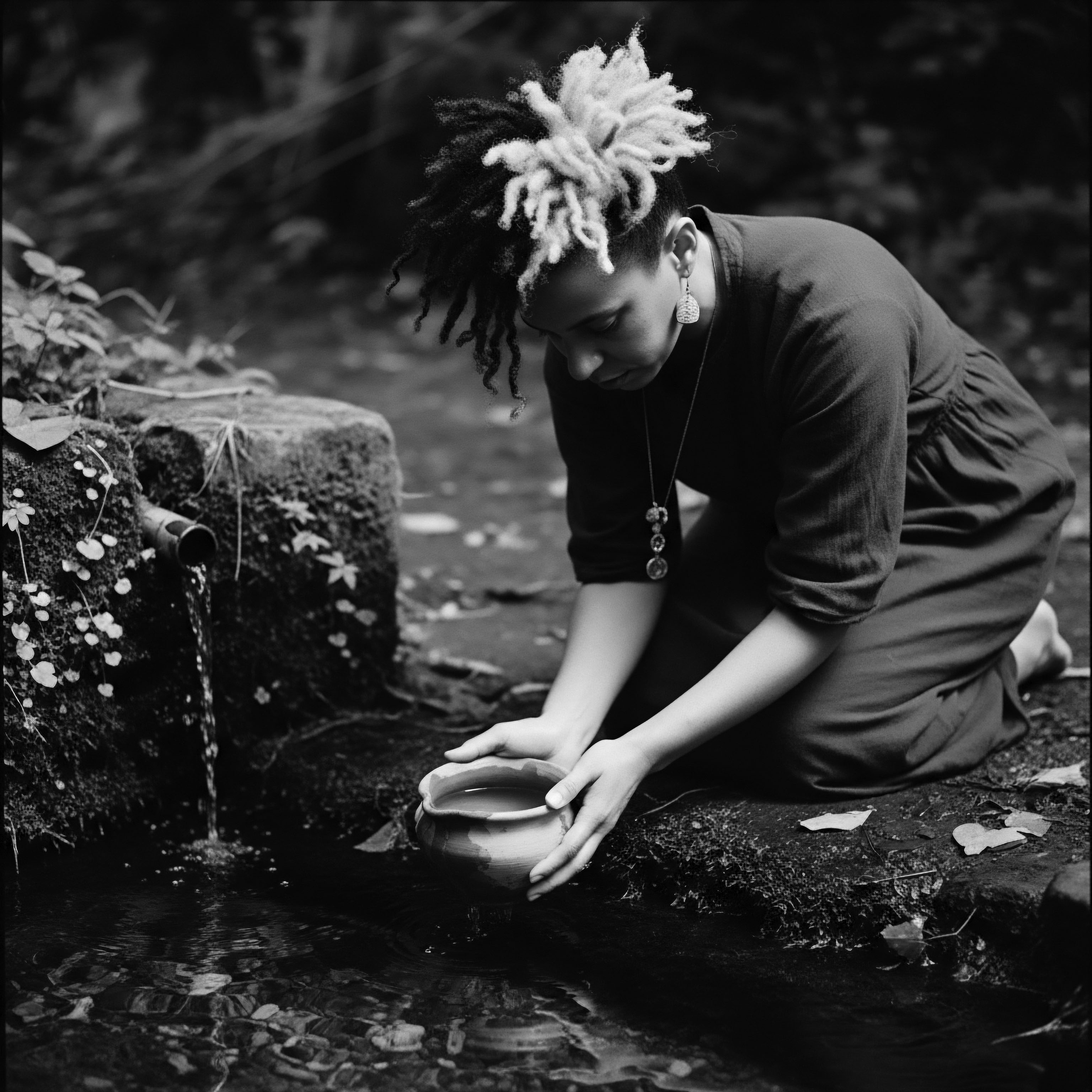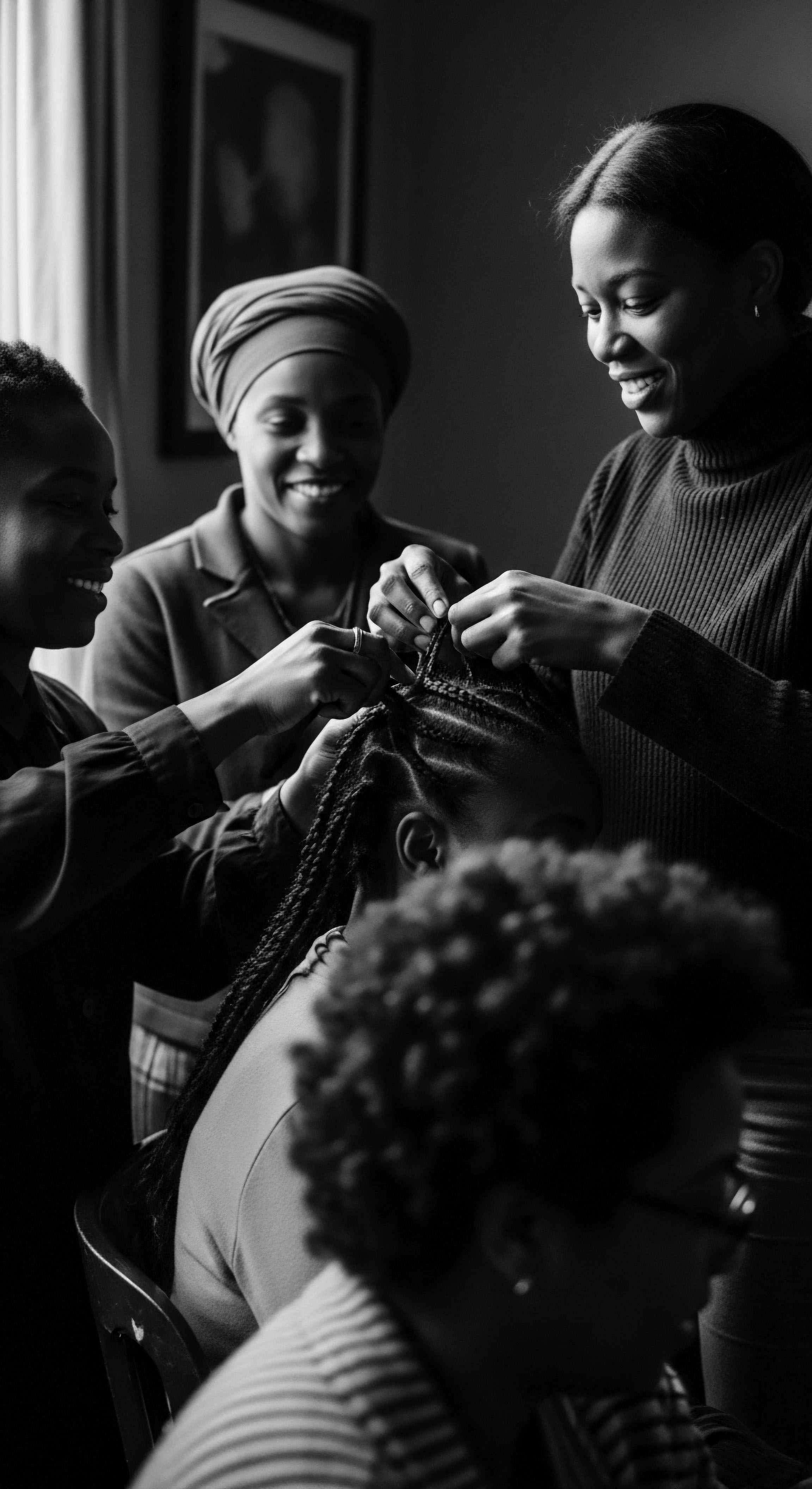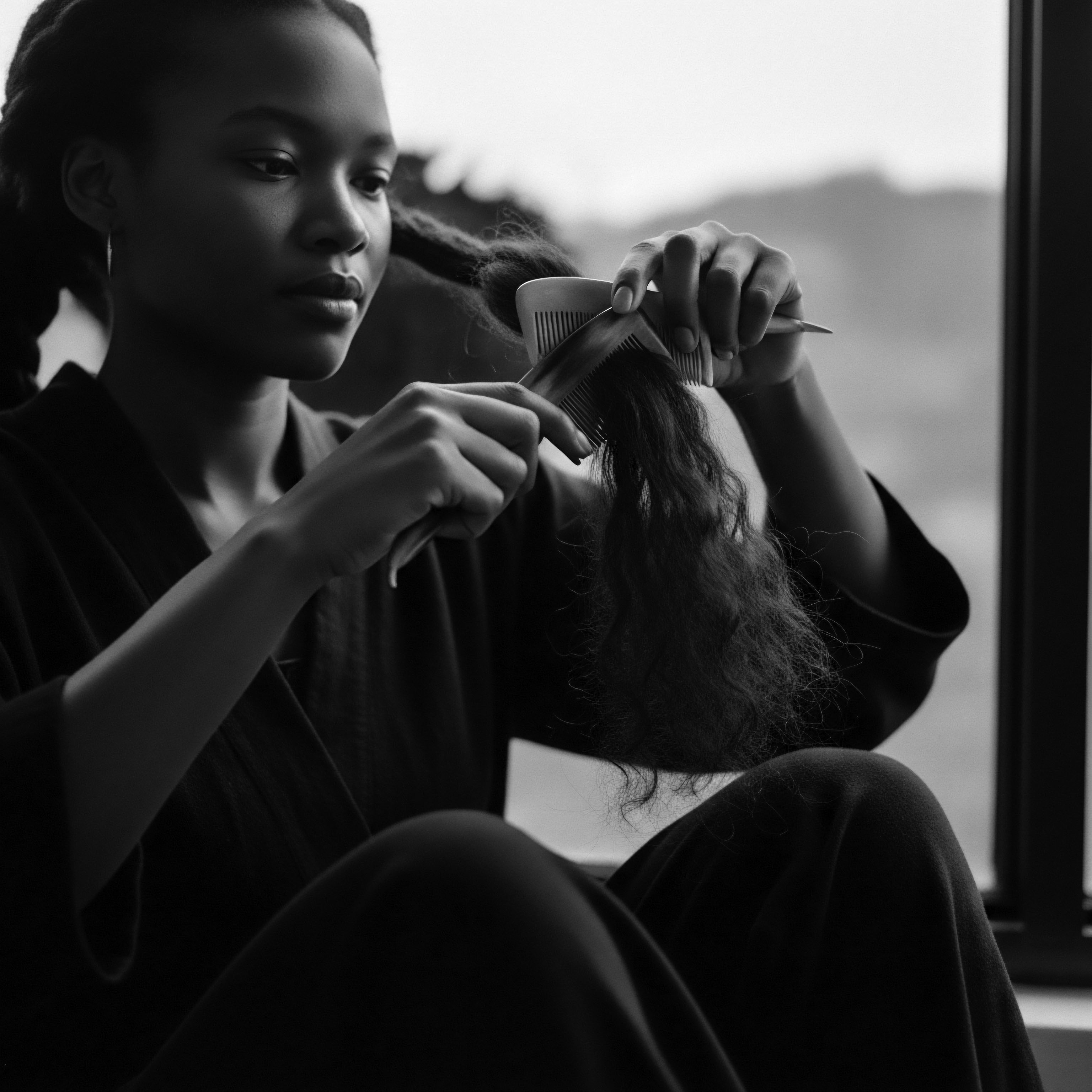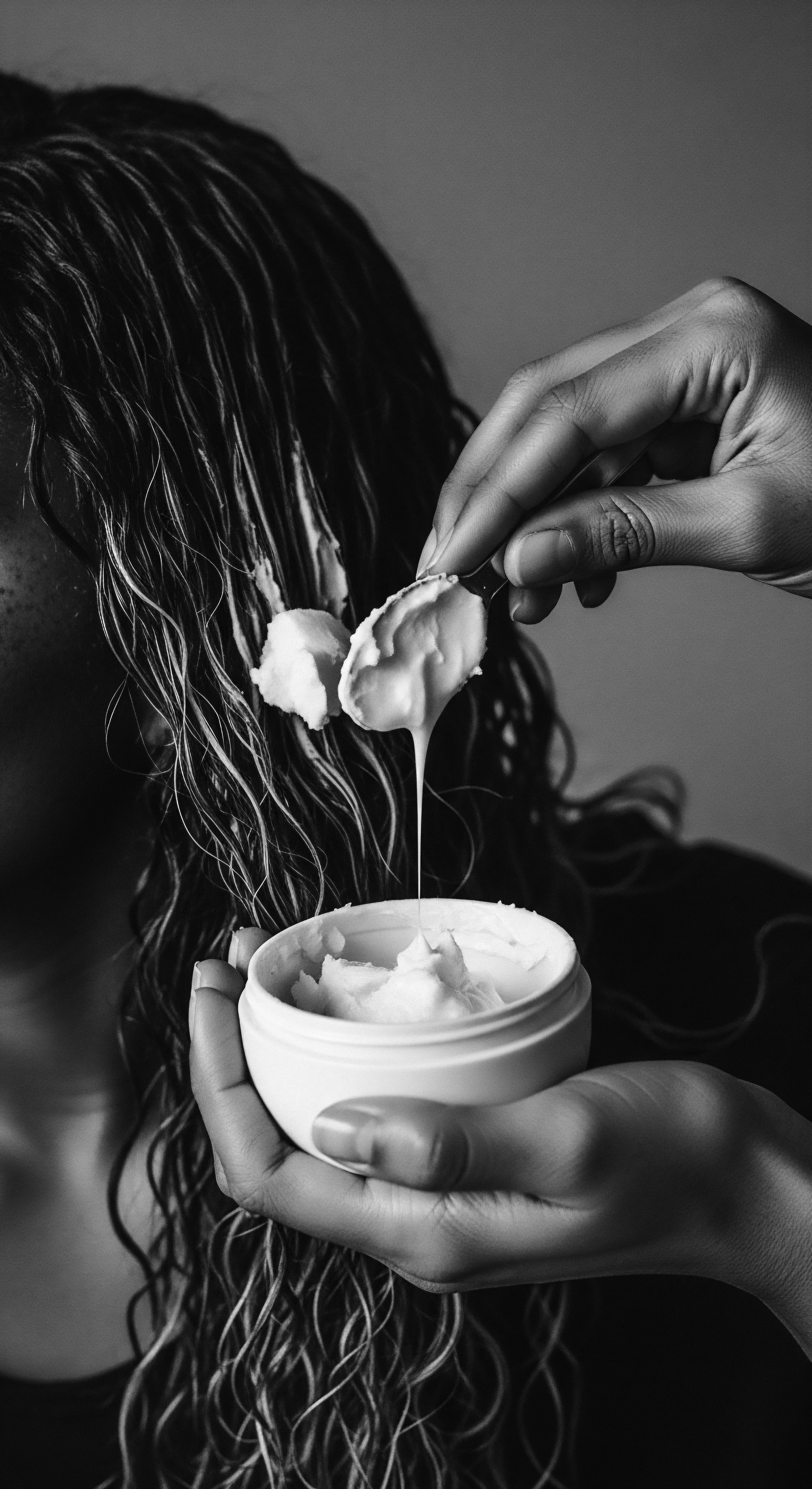
Fundamentals
The concept of the Natural Hair Business, as it finds its place within Roothea’s ‘living library,’ transcends a mere commercial activity. It represents a profound cultural phenomenon, an economic sector, and a deeply personal journey rooted in the ancestral wisdom surrounding textured hair. At its simplest, the Natural Hair Business signifies the collective enterprise of creating, distributing, and consuming products, services, and educational resources tailored specifically for hair that retains its inherent coil, curl, or wave pattern, unadulterated by chemical straighteners.
This encompasses everything from raw ingredients harvested from ancient lands to sophisticated scientific formulations, from intimate home-based styling rituals to bustling salon environments. Its fundamental designation speaks to a marketplace responding to the specific biological and historical needs of Black and mixed-race hair, moving beyond a singular, imposed standard of beauty.
For newcomers to this landscape, understanding its foundational meaning begins with recognizing hair not merely as an aesthetic adornment but as a vital conduit of identity and a historical record. The business sphere around natural hair emerged from centuries of experiences, from the pre-colonial African reverence for hair as a spiritual and social marker to the profound shifts imposed by the transatlantic slave trade. Hair care, in this context, was never a trivial pursuit; it was a practice imbued with cultural significance, community bonding, and a quiet assertion of selfhood. This initial explanation sets the stage for appreciating the depth of this commercial space, recognizing its genesis in a deeply human need for self-expression and care, especially for hair that has historically faced societal pressures and marginalization.
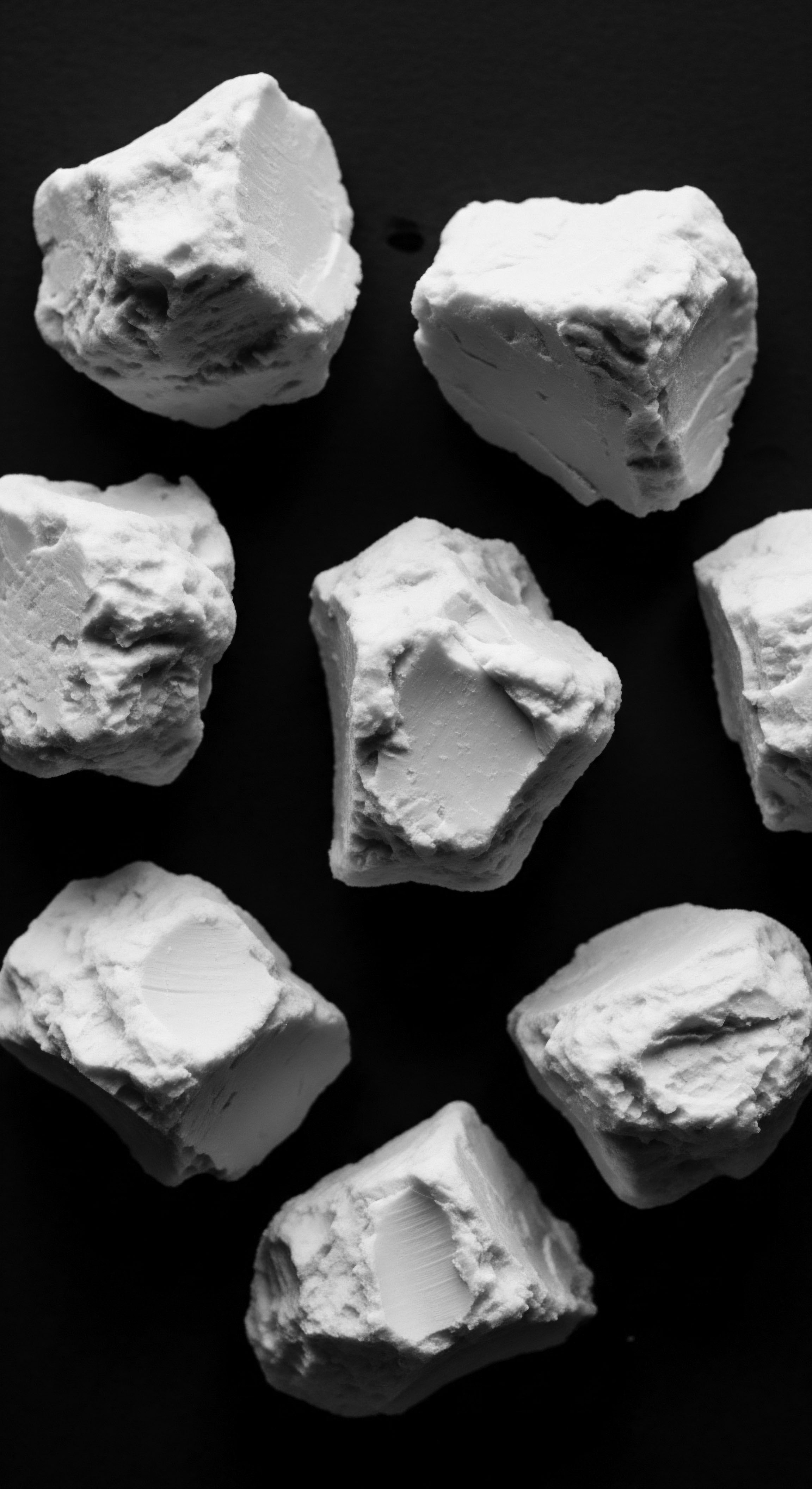
The Ancestral Echoes of Care
Long before the advent of modern commerce, ancestral communities across Africa engaged in sophisticated hair care practices. These were not simply routines; they were communal rites, often involving the gathering of botanicals and the sharing of generational knowledge. The very act of grooming became a moment of connection, a silent passing down of traditions. The description of this business, therefore, cannot begin without acknowledging these ancient roots.
The Natural Hair Business stands as a contemporary echo of ancient practices, transforming ancestral wisdom into a marketplace of self-affirmation and heritage preservation.
In many West African societies, for example, hair styles communicated a person’s marital status, age, and even tribal affiliation. The tools and ingredients employed were sourced directly from the earth: rich butters, potent oils, and various plant extracts. This early, organic approach to hair care forms the bedrock of the modern Natural Hair Business, informing its ongoing emphasis on natural ingredients and gentle practices.
- Shea Butter ❉ Sourced from the karite tree, this rich emollient was a staple for moisturizing and protecting hair and skin across West Africa for millennia.
- Chebe Powder ❉ Hailing from Chad, this unique blend of herbs was traditionally used by Basara women to retain hair length and prevent breakage by sealing moisture into the strands.
- Aloe Vera ❉ Known for its soothing and hydrating properties, this plant found widespread use in various African and diasporic hair remedies.

The Seed of Commerce in Tradition
The seeds of a formal business structure began to sprout even as communities maintained their traditional methods. The exchange of rare ingredients, the specialized skills of master braiders, and the inherent value placed on elaborate styles created a nascent economy. This historical context provides an initial elucidation of how the Natural Hair Business, in its current form, carries within it the spirit of those early exchanges.
The transition from communal practice to a more formalized exchange was a gradual one, accelerated by societal shifts and the emergence of specialized knowledge holders. These early practitioners, often women, held respected positions within their communities, their hands weaving not just hair but also social bonds and cultural continuity. The enduring value placed on skilled hands and inherited knowledge remains a core thread within the contemporary Natural Hair Business, whether in local salons or global product development.
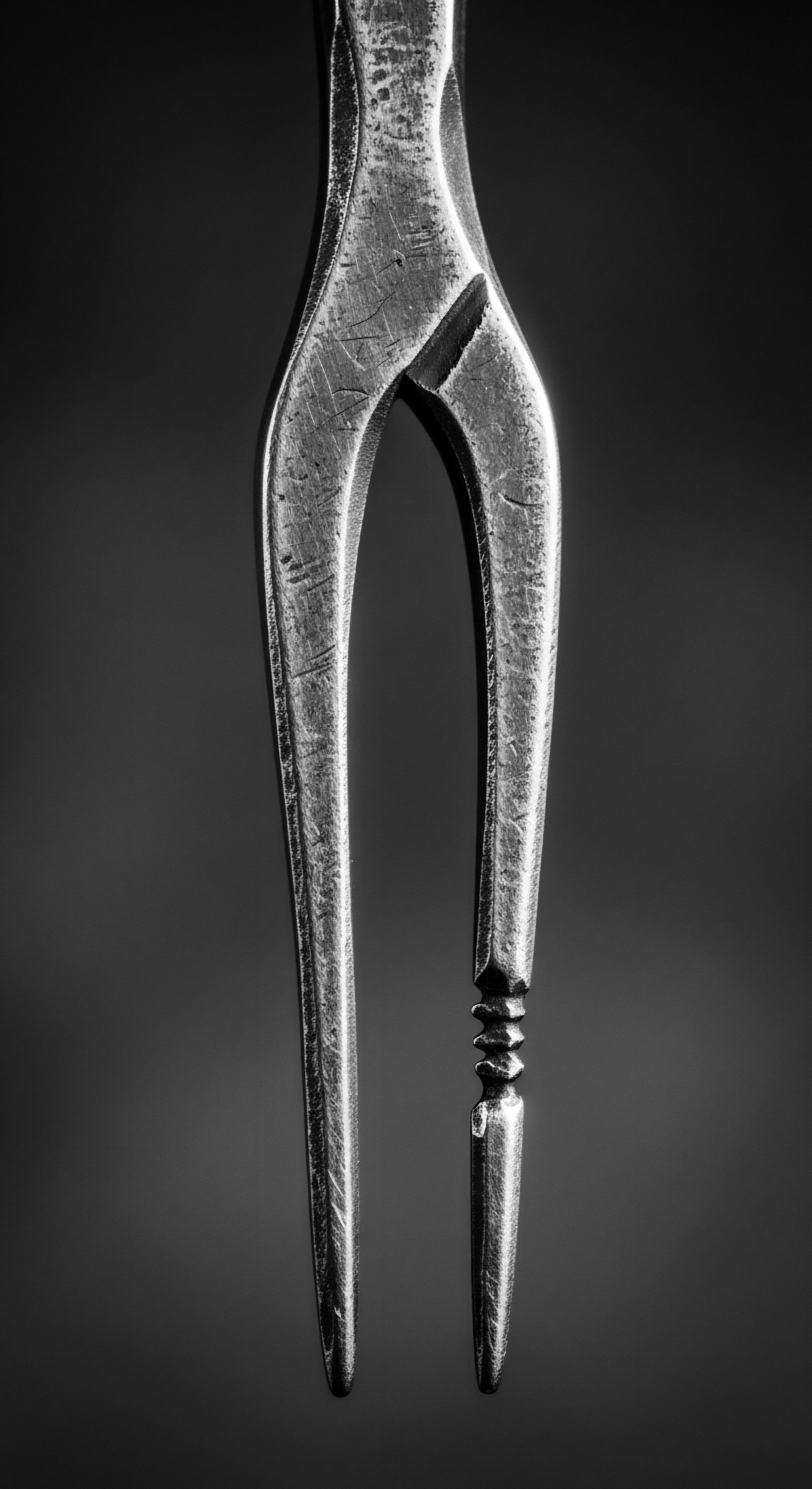
Intermediate
Moving beyond its fundamental understanding, the Natural Hair Business assumes a more layered interpretation when viewed through the lens of intermediate historical and cultural dynamics. It is not merely a market for products; it embodies a reclamation of identity, a space of economic empowerment, and a site of ongoing cultural negotiation for individuals with textured hair, particularly within Black and mixed-race communities. The very act of choosing to wear one’s hair in its natural state, after centuries of societal pressure to conform to Eurocentric beauty ideals, represents a profound assertion of selfhood. This business sector, therefore, operates as a mirror reflecting the evolving relationship between Black identity and societal perceptions of beauty.
The genesis of this contemporary business cannot be disconnected from the historical context of the transatlantic slave trade, which brutally severed many ancestral connections to hair care practices. Enslaved Africans were often subjected to head shaving, an act of dehumanization intended to strip them of their cultural markers and identity. Yet, even in the most oppressive circumstances, acts of hair care persisted as quiet resistance.
For instance, some enslaved African women, particularly rice farmers, ingeniously braided rice seeds into their hair before forced migration to the Americas, a poignant act of preserving sustenance and cultural memory (Byrd & Tharps, 2001). This deeply rooted historical narrative underscores the resilience that underpins the Natural Hair Business today, making it far more than a simple industry; it is a continuation of ancestral ingenuity and self-preservation.
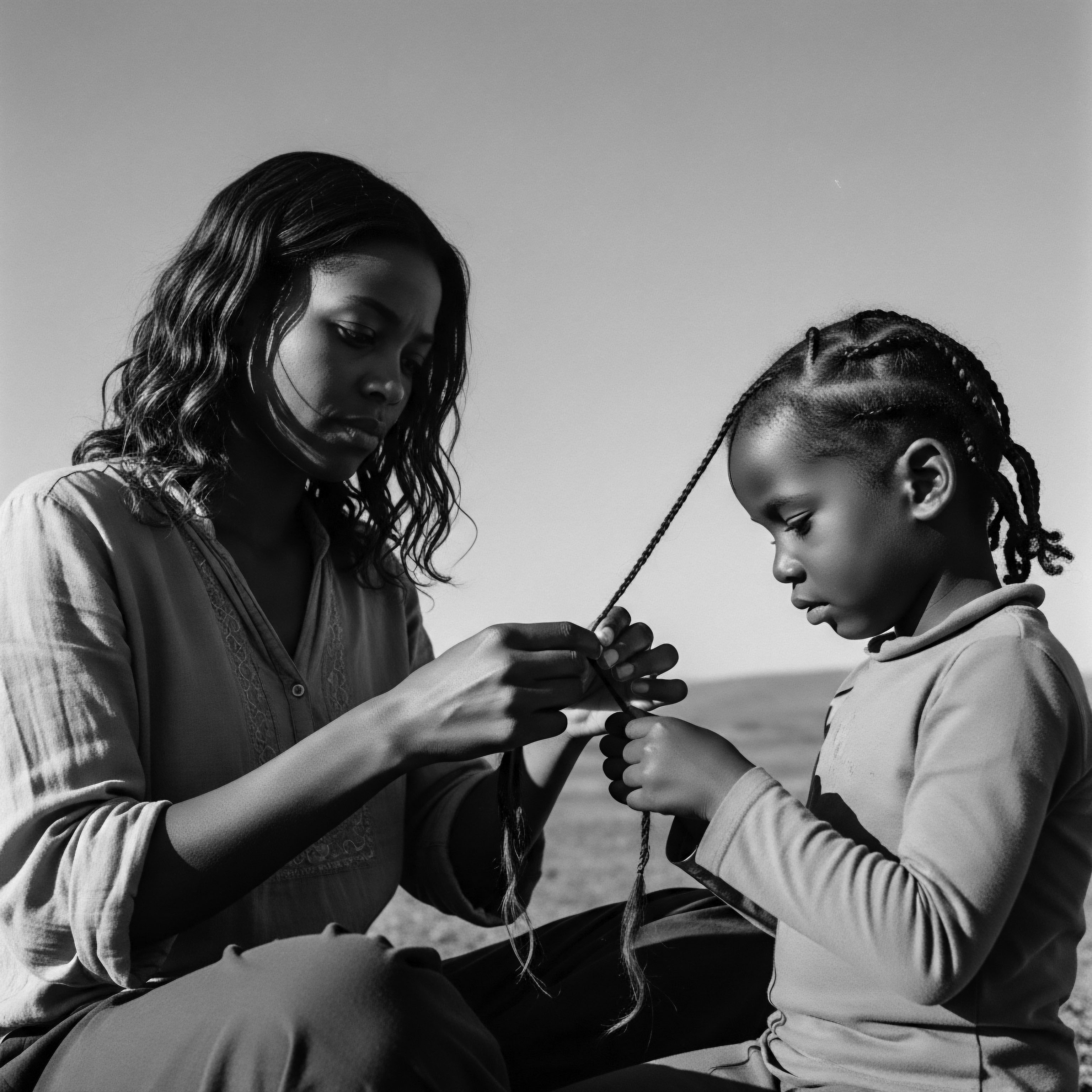
The Eras of Alteration and Resistance
The period following emancipation saw the rise of practices aimed at altering hair texture to align with dominant beauty standards. The hot comb, popularized by figures like Madam C.J. Walker in the early 20th century, provided a means for Black women to straighten their hair, a tool that, while offering a semblance of societal acceptance, also symbolized a departure from natural texture. This era, characterized by the widespread use of chemical relaxers and heat styling, created a demand that early Black entrepreneurs skillfully addressed, building significant wealth within their communities despite the underlying societal pressures.
The Natural Hair Business carries the weight of historical pressures and the triumph of cultural reawakening, making every product and service a step in a larger narrative.
However, the 1960s and 1970s marked a significant cultural shift with the Civil Rights Movement. The Afro became a powerful symbol of Black pride, self-acceptance, and resistance against oppressive beauty norms. This cultural reawakening laid foundational groundwork for the modern Natural Hair Business, demonstrating a collective desire to celebrate inherent beauty. This historical trajectory reveals a dynamic interplay between societal pressures, individual choices, and the collective assertion of identity.
The industry responded, albeit slowly at first, to this burgeoning demand for products that honored natural textures. Early Black-owned companies like Shea Moisture and Carol’s Daughter stepped into this space, recognizing a significant market gap for specialized products. This responsiveness highlights the cyclical nature of this business, deeply influenced by cultural tides and shifts in collective consciousness.
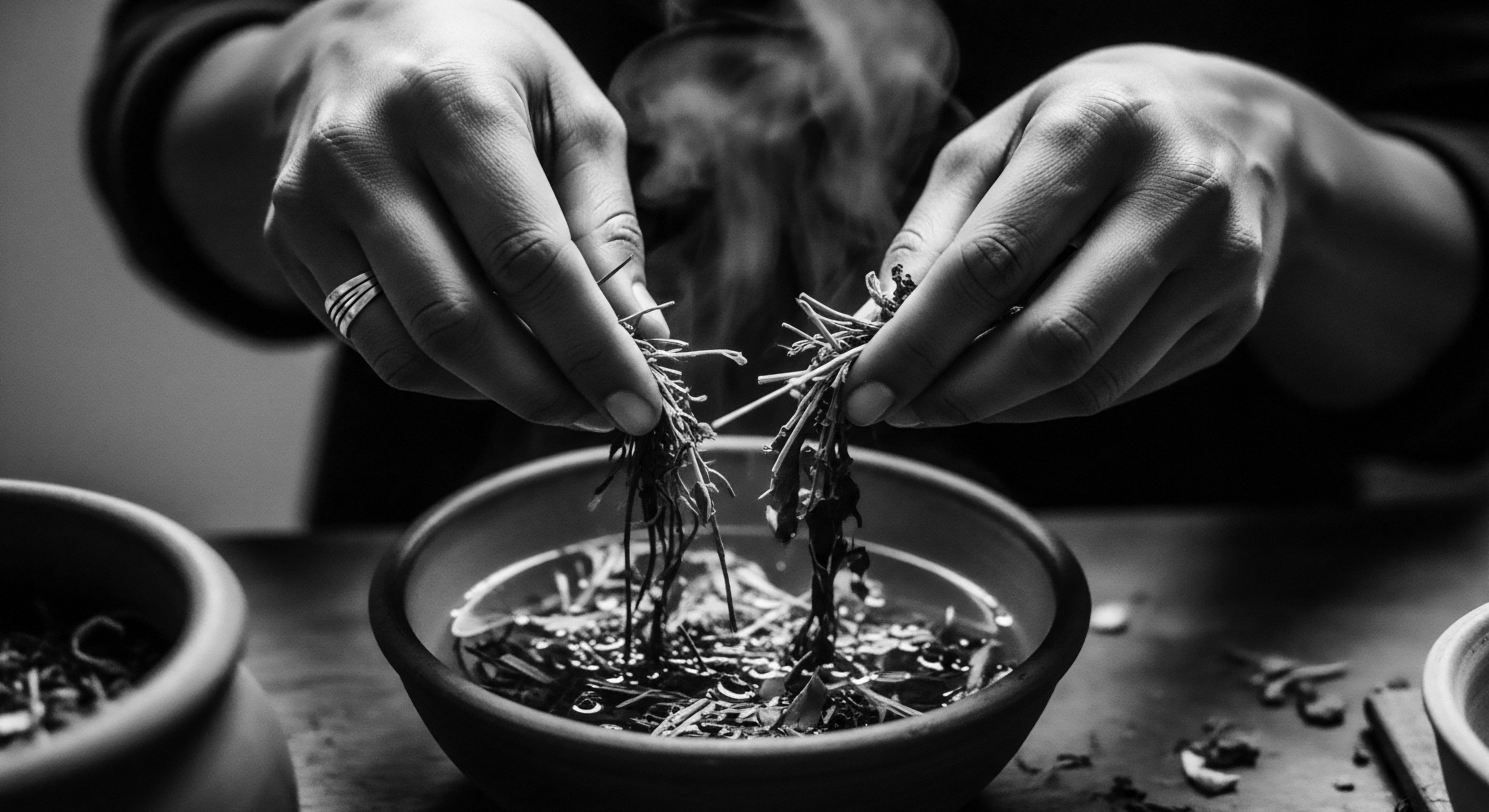
Economic Empowerment as a Cultural Force
The economic dimension of the Natural Hair Business is particularly noteworthy. It represents a significant flow of resources within Black and mixed-race communities, supporting entrepreneurs, stylists, and manufacturers. The black haircare market alone was valued at an estimated $2.51 billion in 2018, a testament to the collective purchasing power and cultural investment in this sector. This financial muscle translates into tangible community benefits, fostering local economies and creating pathways for self-sufficiency.
This financial flow extends beyond product sales to include a burgeoning service industry, from specialized salons catering to various curl patterns to independent stylists offering unique braiding and twisting techniques. These businesses serve as vital community hubs, where cultural exchange, storytelling, and intergenerational knowledge transfer occur alongside hair care. The clarification here is that the economic vitality of this sector is inseparable from its cultural roots and ongoing community engagement.

Academic
The Natural Hair Business, when subjected to academic scrutiny, represents a complex socio-economic construct, fundamentally defined by its delineation as a market apparatus that both responds to and shapes the cultural, psychological, and biological realities of textured hair. Its academic meaning transcends a mere commercial categorization, instead positioning it as a dynamic field where historical oppression, ancestral resilience, and scientific understanding intersect. This domain of commerce is a direct outgrowth of centuries-long struggles against Eurocentric beauty hegemony, a testament to the enduring power of Black and mixed-race communities to redefine beauty standards and assert bodily autonomy. The scholarly approach necessitates an examination of its multifaceted dimensions, from the ethnobotanical origins of its ingredients to the psychosocial impact of its consumption, all viewed through the profound lens of textured hair heritage.
Central to an academic understanding is the recognition that textured hair, with its unique follicular morphology and structural characteristics, possesses distinct needs that historically were either ignored or pathologized within mainstream beauty industries. The helical structure of coily and curly hair, prone to dryness and breakage due to fewer cuticle layers and increased surface area, necessitates specific formulations that prioritize moisture retention and gentle manipulation. The academic study of the Natural Hair Business, therefore, investigates how this market addresses these biological specificities, often by validating and re-introducing traditional practices and ingredients that ancestral communities instinctively understood. This validation represents a compelling dialogue between inherited wisdom and contemporary scientific inquiry, a powerful example of how ancestral knowledge, once dismissed, now finds affirmation through modern research.

Historical Precedents and the Commodification of Identity
The historical arc of Black hair in the diaspora provides a crucial framework for understanding the Natural Hair Business. During chattel slavery, the systematic shaving of heads served as a deliberate act of cultural effacement and dehumanization, severing the deep spiritual and social ties that connected hair to identity in pre-colonial African societies. This period instigated a profound collective trauma around hair, giving rise to a later demand for products that promised to alter hair texture to conform to oppressive beauty standards.
The rise of early Black hair care entrepreneurs, such as Madam C.J. Walker, while undeniably representing economic ingenuity and self-made success, occurred within this fraught context. Walker’s development and marketing of hair growth serums and pomades, including the popular “hot comb,” offered Black women a pathway to hair that was perceived as more “manageable” or “acceptable” in a society that denigrated natural texture. This historical juncture highlights a complex interplay: the emergence of a business designed to address hair needs, yet simultaneously perpetuating an aesthetic rooted in assimilation.
Scholars like Tiffany Nicole Peacock (2019) contend that altering coily and curly textures for straighter styles historically served to erase markers of African identity, a response to systemic discrimination. The Natural Hair Business, in its contemporary iteration, therefore grapples with this legacy, seeking to dismantle these historical impositions while building a market that champions authentic self-expression.
The Natural Hair Business navigates a legacy where commerce and identity intertwine, seeking to heal historical wounds through celebration of inherent beauty.
The late 20th and early 21st centuries witnessed a profound cultural shift, often termed the ‘Natural Hair Movement,’ which catalyzed the modern Natural Hair Business. This movement, rooted in the Black Power and “Black is Beautiful” sentiments of the 1960s and 70s, encouraged a collective rejection of chemical straighteners and a return to inherent textures. This societal reorientation created an unprecedented demand for products and services that catered to coils, kinks, and waves, giving rise to a distinct economic sector.
The subsequent growth in this market, with the global natural hair care products sector valued at approximately $9.89 billion in 2022, and projected to reach $16.62 billion by 2032, is not merely a statistical anomaly. It is a direct measure of cultural agency and economic self-determination within marginalized communities.

The Biocultural Intersection of Product and Practice
An academic examination of the Natural Hair Business necessitates a biocultural perspective, recognizing that hair care practices are deeply embedded in both biological realities and cultural frameworks. Traditional African hair care, for instance, relied heavily on indigenous botanicals like shea butter, coconut oil, and various plant extracts, not only for their aesthetic benefits but also for their purported medicinal properties. Contemporary scientific inquiry is increasingly validating the efficacy of these ancestral ingredients.
For example, research has shown that shea butter, rich in fatty acids and vitamins, acts as an excellent emollient and anti-inflammatory agent, benefiting scalp health and hair integrity. Similarly, coconut oil has been demonstrated to reduce protein loss in hair, a crucial factor for preventing breakage in textured strands.
The Natural Hair Business thus becomes a conduit for transmitting and re-contextualizing ancestral knowledge. It offers products that are often formulated with these time-honored ingredients, but now backed by modern dermatological and cosmetic science. This synergy allows for a more nuanced understanding of hair health, moving beyond superficial aesthetics to a holistic approach that honors the hair’s inherent structure and the cultural practices that have sustained it for generations. The development of specific product categories ❉ from sulfate-free cleansers to deeply conditioning masks and styling creams designed for curl definition ❉ reflects a sophisticated understanding of textured hair’s unique requirements, an understanding often informed by lived experiences and ancestral wisdom.
Moreover, the academic discourse around the Natural Hair Business extends to its psychosocial implications. The choice to wear natural hair, supported by the availability of appropriate products and services, is frequently tied to notions of self-esteem, cultural pride, and resistance to systemic discrimination. Instances of hair discrimination in schools and workplaces, leading to legislative efforts like the CROWN Act in the United States, underscore the ongoing societal battle over the acceptance of textured hair. The business, therefore, operates not just as a commercial entity but as a facilitator of personal and collective liberation, allowing individuals to align their external presentation with their internal sense of identity and heritage.
- Follicular Morphology ❉ Understanding the unique elliptical shape of textured hair follicles, which results in the characteristic coiling pattern and greater susceptibility to dryness and breakage, is paramount for product development.
- Ingredient Efficacy ❉ Scientific analysis of traditional African ingredients, such as Moringa oil for its antioxidant properties or Baobab oil for its rich fatty acid profile, informs the formulation of effective natural hair products.
- Protective Styling Mechanics ❉ The engineering of hair tools and accessories that minimize tension and friction on textured hair, such as wide-tooth combs or silk bonnets, is crucial for maintaining hair health and preventing traction alopecia.
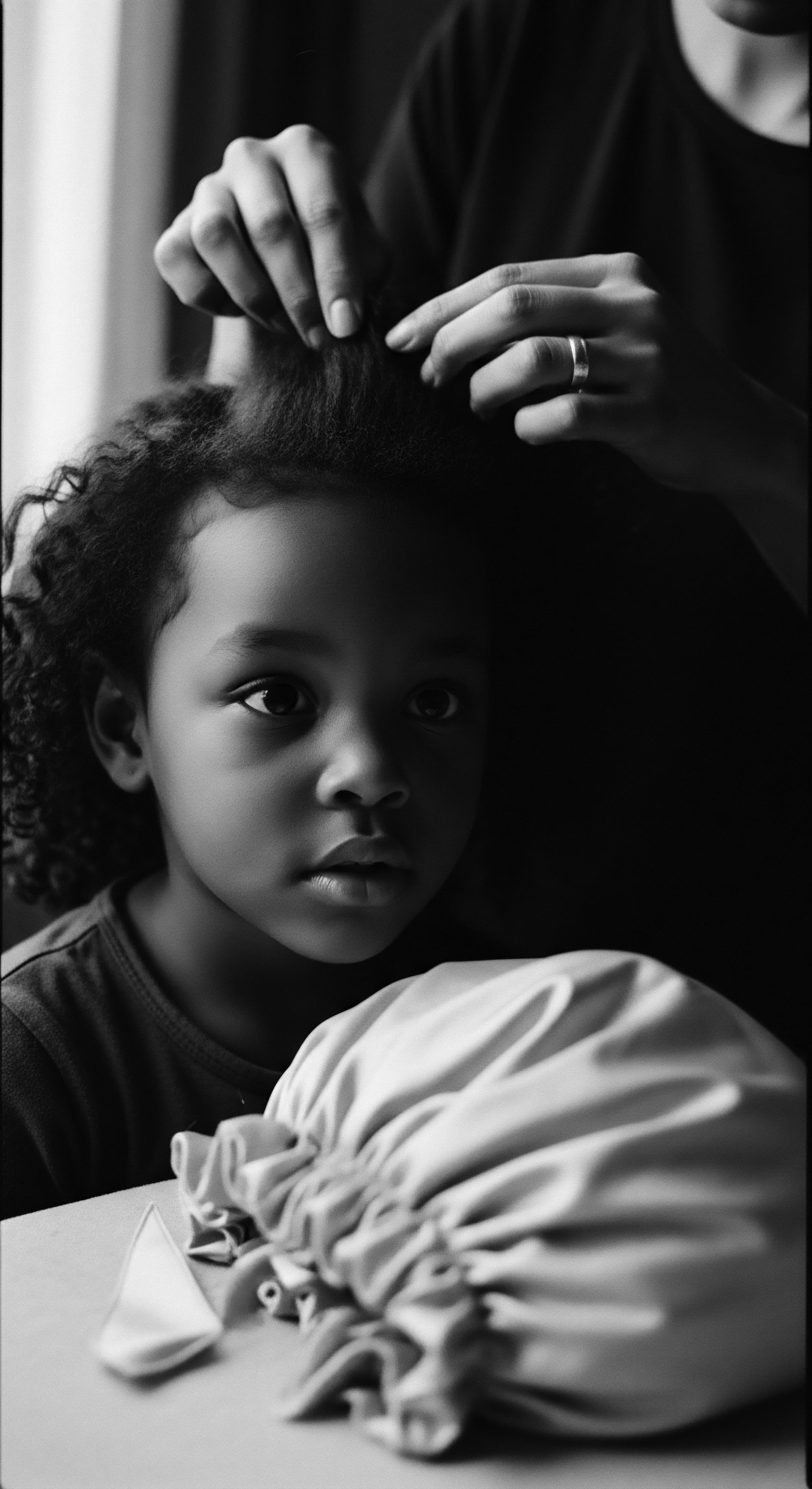
The Socio-Economic Ecosystem
The Natural Hair Business forms a vibrant socio-economic ecosystem. This ecosystem includes not only manufacturers and retailers but also a vast network of natural hair stylists, educators, content creators, and community organizers. These various actors collectively contribute to the explication of natural hair care, disseminating knowledge and fostering supportive environments. Stylists, for example, often serve as cultural gatekeepers, providing not only technical services but also guidance on hair health, product selection, and identity affirmation.
The digital landscape has played a significant role in expanding this ecosystem, with online communities, tutorials, and e-commerce platforms democratizing access to information and products. This digital connectivity has allowed for the rapid sharing of ancestral hair care techniques and the validation of personal hair journeys, creating a global community united by shared experiences and a common commitment to textured hair health. The specification of this business must therefore acknowledge its decentralized, community-driven aspects, which distinguish it from more traditional, top-down industries.
Furthermore, the Natural Hair Business contributes to broader discussions on ethical sourcing, sustainability, and cultural appropriation. As demand for natural ingredients from African and Caribbean regions grows, there is an increasing imperative to ensure fair trade practices and responsible harvesting that benefit the indigenous communities from whom this knowledge and these resources originate. This ethical dimension adds another layer of complexity to the academic understanding of the Natural Hair Business, positioning it as a space for both economic opportunity and social responsibility.
The academic analysis reveals that the Natural Hair Business is a living testament to the ongoing re-negotiation of beauty, identity, and economic power within communities of the African diaspora. It represents a conscious movement away from imposed standards, a return to inherent forms, and a profound affirmation of heritage, all while navigating the complexities of a globalized marketplace. Its sustained growth and cultural resonance underscore its enduring substance as a field worthy of deep, interdisciplinary inquiry.
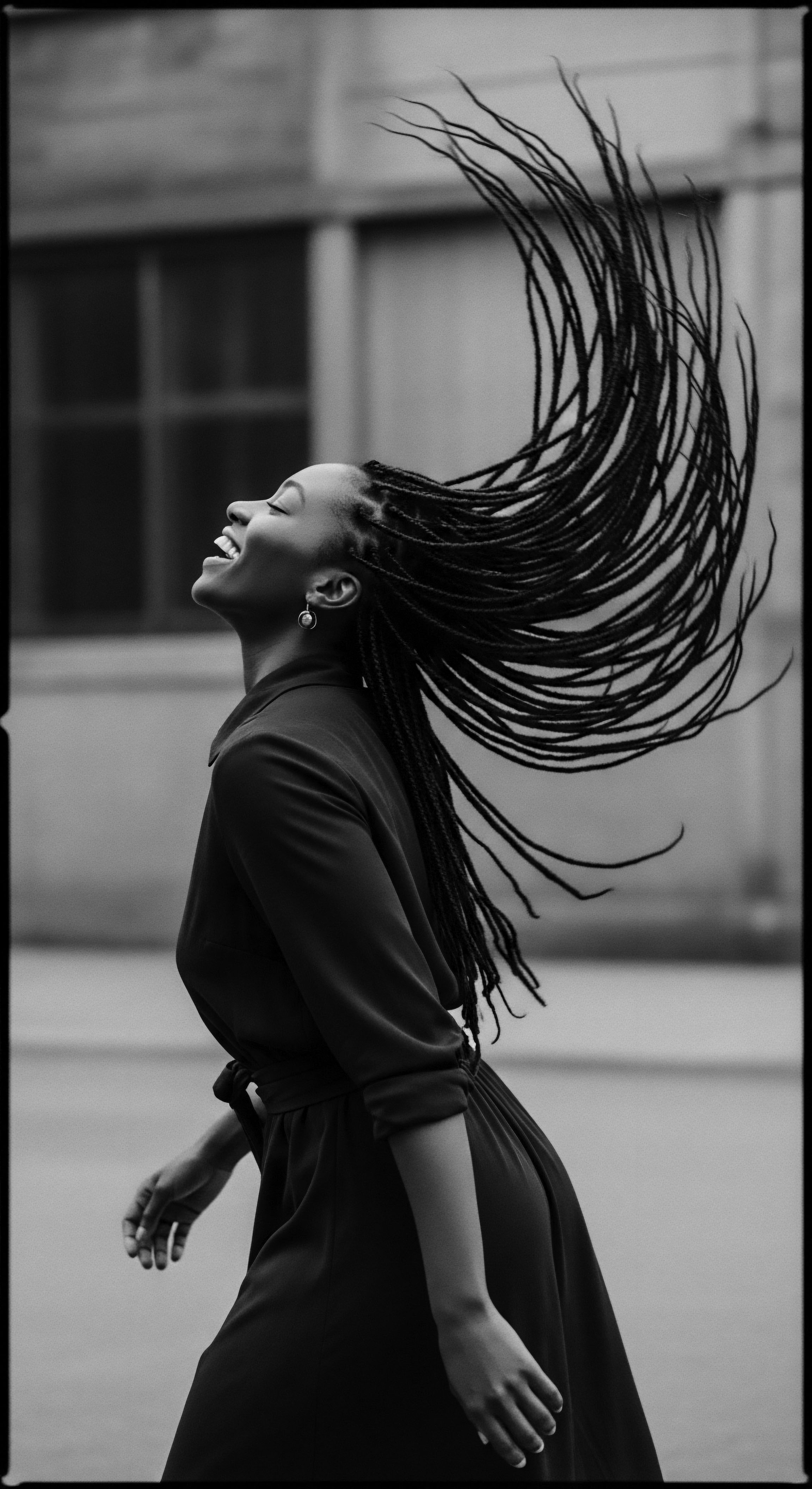
Reflection on the Heritage of Natural Hair Business
As we draw our exploration of the Natural Hair Business to a close, a powerful truth emerges: this is far more than a transient market trend. It stands as a profound meditation on textured hair, its ancestral story, and its careful stewardship, truly a living, breathing archive within Roothea’s collection. The journey from the elemental biology of the strand, through the ancient whispers of communal care, to the vibrant expressions of contemporary identity, reveals an unbroken lineage. Each coil, every wave, carries within its very structure the echoes from the source ❉ the genetic inheritance, the resilience against centuries of adversity, and the inherent beauty that was always present.
The tender thread of care, woven through generations, has transformed from necessity into celebration. The hands that once braided rice seeds for survival now adorn crowns with intention and pride. The marketplace, once dominated by solutions for alteration, now thrives on products that honor the hair’s natural inclinations.
This shift is not simply commercial; it is a spiritual homecoming, a collective remembering of self-worth that radiates outward. The Natural Hair Business, in its deepest essence, serves as a vessel for this ancestral wisdom, translating ancient practices into accessible forms for a modern world, ensuring that the legacy of care continues to flow.
The Natural Hair Business is a continuous dialogue between ancestral wisdom and contemporary self-love, affirming the profound beauty of textured hair.
The unbound helix, a metaphor for the liberated strand, symbolizes the future of textured hair. It speaks to a future where acceptance is universal, where the unique qualities of every curl pattern are celebrated without reservation, and where the economic landscape truly serves the holistic wellbeing of individuals and communities. This ongoing evolution within the Natural Hair Business points toward a horizon where heritage is not merely remembered but actively lived, where every product chosen and every style worn is a conscious affirmation of an ancestral narrative. It is a testament to the enduring spirit of a people who, through their hair, continue to voice identity, shape futures, and uphold a sacred legacy.

References
- Byrd, A. D. & Tharps, L. D. (2001). Hair Story: Untangling the Roots of Black Hair in America. St. Martin’s Press.
- Jacobs-Huey, L. (2006). From the Kitchen to the Salon: Black Women’s Hairdressing, Beauty Culture, and Cultural Production. Rutgers University Press.
- Patton, T. O. (2006). African-American Women and Hair: Is It Just Hair? The Edwin Mellen Press.
- Peacock, T. N. (2019). African American Hair and Beauty: Examining Afrocentricity and Identity Through the Reemergence and Expression of Natural Hair in the 21st Century (Master’s thesis). University of South Carolina.
- Rooks, N. M. (1996). Hair Raising: Beauty, Culture, and African American Women. Rutgers University Press.
- Tate, S. (2007). Black Beauty: Aesthetics, Culture, and Identity. Ashgate Publishing.
- Walker, A. (1983). In Search of Our Mothers’ Gardens: Womanist Prose. Harcourt Brace Jovanovich.
- Banks, I. (2000). Hair Matters: Beauty, Power, and Black Women’s Consciousness. New York University Press.
- Mercer, K. (2000). Black Hair/Style Politics. In S. Hall (Ed.), Black Hair: Art, Culture, History (pp. 38-47). Thames & Hudson.
- McMichael, A. J. (2003). Hair and Scalp Disorders in African American Women. Dermatologic Clinics, 21(4), 651-662.
- Loussouarn, G. & Rawadi, C. (2005). Diversity in Human Hair Growth: An Overview. International Journal of Cosmetic Science, 27(1), 1-10.
- Wolff, H. & Fischer, T. W. (2003). The Biology of Hair. Journal of Cosmetic Dermatology, 2(3-4), 147-152.


